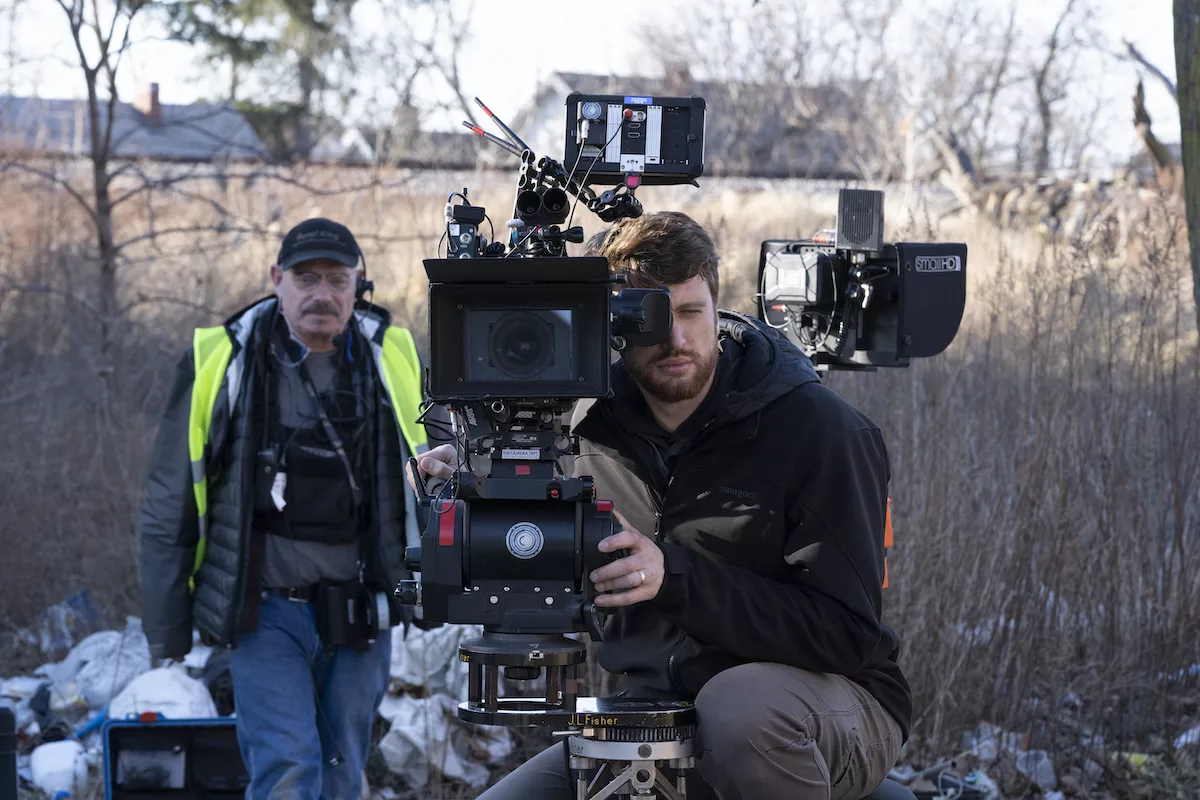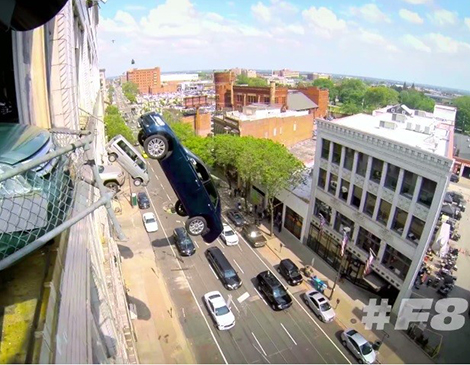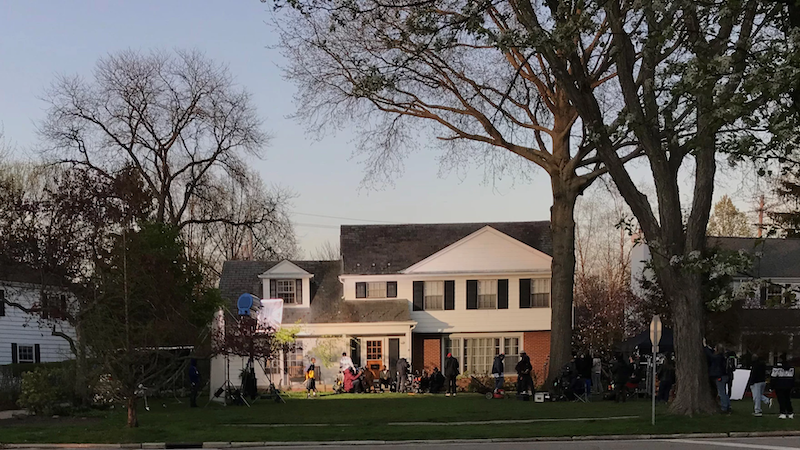SOURCE: Downtown Cleveland
August 30, 2023
Have you ever been watching a movie and thought to yourself, “this looks familiar”? That’s because it might be! There have been over 145 movies and 160 other projects filmed in the State of Ohio, and over 58 movies filmed in Cleveland since 2009, including The Avengers, Captain America: Winter Soldier, the Fate of the Furious, and White Noise. This is largely due to the creation of the Ohio Motion Picture Tax Credit, which has attracted productions and generated economic impact to our state since it was first introduced in 2009.

East 9th set up for the filming of The Avengers
The Ohio Motion Picture Tax Credit provides a refundable tax credit that equals 30% of in-state expenditures on eligible productions who spend a minimum of $300,000 in the State of Ohio. Eligible productions may include feature-length films, TV shows, documentaries, music videos, commercials, video games, theatrical stage productions and more. Once productions are approved for the Ohio tax incentive, they can only receive tax incentive reimbursement once they have finished production and submit an audit to the state, after the spending has taken place in Ohio. In the previous two years, Ohio has seen nearly $133.6 million of out-of-state investment flow into northeast Ohio to spend on motion picture productions. From 2009-2020, it attracted over $571.8 million to our state from direct production spending and job creation. This investment generates significant economic impact for our region, as film crews utilize hotels, eat locally, and shop at retail storefronts.

As stewards of Downtown Cleveland’s economic growth, we understand that the Ohio Motion Picture Tax Credit plays a critical role in attracting investment, jobs, residents, and visitors to our central business district. In the 2024-2025 State Operating Budget, we were proud to successfully advocate for increases to the tax credit to $50 million this year, and an increase to $75M beginning in July of 2024. Due to this increase in state investment, eight projects were approved to be filmed in Ohio, five of which will be filmed in the Cleveland area. These projects will amount to over $96.3 million in combined production budgets set to film in Cleveland.

Playhouse Square in Downtown Cleveland
Downtown Cleveland is home to the second largest performing arts district outside of New York City – Playhouse Square – where Broadway productions are often tested or launched. One such example is The Lion King, which launched its first run after the pandemic in Downtown Cleveland. Playhouse Square attracts over 1 million visitors each year, amounting to over $359 million in economic impact each year. An additional $5M in the State Operating Budget was allocated to Playhouse Square to be used for theatrical productions. This will help us to continue to elevate our stature as a national hub for the performing arts.
Despite these wins in the State Budget, our advocacy work on the Ohio Motion Picture Tax Credit is not over. There are currently 38 states offering similar incentives, including Georgia whose program is currently uncapped, resulting in $4.4 billion in direct production spending in Georgia in 2022. Furthermore, Texas recently increased its cap to $200 million per year and New Jersey recently introduced legislation to increase its annual cap to $200 million.

Movie Magic on East 9th
Global production spending has increased by more than double in the last decade, from $128 billion in 2013 to $238 billion in 2022. Ohio can be competitive in this growing industry by increasing the Motion Picture Tax Credit cap. In the last two years, over $409 million combined production budget applied to film in Ohio but were turned away due to the annual cap, resulting in the productions opting for competitor states. Ohio must also restore a more efficient rolling application process instead of the existing 14 week-long application window process. A rolling application will allow for eligible productions to apply and be approved as projects arise, allowing the funds to attract new investment rather than holding incentives for six months.
As we continue to advocate for greater investment in this incentive program, we are highly anticipating the five exciting projects that will begin filming in the Cleveland area. Downtown Cleveland will be coming soon to a screen near you!











